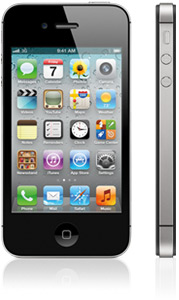Samsung seeks to ban iPhone 4S amid patent row

Samsung could target the iPhone 4S, the announced only yesterday next-generation Apple smartphone, in an ongoing patent infringement battle between the two companies.

It will also file legal cases in other countries "after further review", Reuters reports.
"Apple has continued to flagrantly violate our intellectual property and free-ride on our technology", Samsung said in a statement, adding: "We will steadfastly protect our intellectual property".
Preliminary requests for a ban on the iPhone 4S will be filed today, revolving around two particular patents relating to its wireless WCDMA technology. It adds to Samsung's filings earlier this year in the United States in April, claiming that the wireless patents were infringed upon.
Under European law, companies can seek a ban on products even before products are let loose on the sales floor.
The ongoing patent row threatens Samsung's smartphone business, with the Galaxy tablet and smartphone range allegedly violate the design patents of Apple's corresponding iPad and iPhone range.
Samsung has had its products banned in a number of countries already, including on its own home turf in South Korea.
In the U.S., however, as the legal battle between the two companies rage on, cellular networks Verizon and T-Mobile have stepped into the ring in a bid to resolve the differences, before a possible ban could impede their own businesses.
Both Verizon and T-Mobile sided with Samsung, a manufacturer of 4G compatible smartphones, citing reasons that 4G network adoption rates would suffer if Samsung's phones were banned in the U.S.
Apple did not wish to comment.
Related:
- Apple's iPhone 4S: A look at the winners, losers
- Verizon sides with Samsung in Apple patent spat
- T-Mobile sides with Samsung's defense in Apple patent suit
- Apple CEO Cook lets team, iPhone 4S do the talking
- Analysts lukewarm on Apple's iPhone 4S
- Takeaway from the iPhone event: Solid phones, end of an era
- ZDNet Video: Apple unveils the iPhone 4S 'world' phone